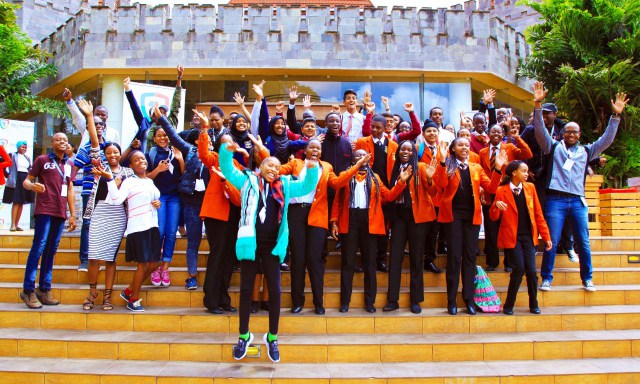
Over the years, Google has been promoting safe use of the internet. Its program dubbed the Web Ranger was created to engage people about safe practices when surfing the net. Now, Google Kenya is hosting the first Web Rangers summit in Africa aimed at spreading awareness about internet safety and promoting responsible digital citizenship on the continent.
26 Web Rangers from Kenya, Nigeria and South Africa are attending the summit to meet and share ideas on how they can make the Internet a safer place for young Internet users in their respective countries.
According to the Principal Secretary Broadcasting and Telecommunication, Ms Fatuma Hirsi, ”Programmes such as Web Rangers are a very welcome complement to the work that parents, teachers, guardians and governments do in building a better world for our children.”
“I congratulate Google in conceptualising the programme and scaling it to many countries in such a short time, and also for your work in building into your products and services tools and resources that help families to use the Internet safely and responsibly. I thank you too for your choice of our beautiful country Kenya as the host of your Summit,” she added in a speech read on her behalf by Mr Timothy Were, Deputy Director, Ministry of ICT Kenya.
Doron Avni, Director, Public Policy and Government Relations, EMEA Emerging Markets and founder of Webrangersa said: “At Google, we are deeply committed to protecting children on the Internet and providing all of our users with a safe experience because protecting kids is a responsibility we all share, and our business depends on people being online — and we need it to be a safe space.”
Main highlights of the Summit programme include a boot camp on how to make campaign videos for online audiences topics such as diversity and inclusion, trust, tolerance and responsibility. Participants will also learn how to tackle real-life policy issues – focusing on cyberbullying, sexting, sharing personal information online and catfishing.
Web Rangers is a Google-led digital literacy programme aimed at promoting and educating the youth about how the internet is an empowering tool relevant to their lives and their future.
The programme provides workshops run by local online safety experts to help train young people. These young online safety ‘ambassadors’ then run campaigns amongst their peers, schools and communities to raise awareness of online safety.
Started in Israel in 2011, Web Rangers has since grown to 15 countries around the world. In Africa, Web Rangers is active in 3 countries – Kenya, South Africa and Nigeria.
In Kenya, Web Rangers was launched in 2015 at Precious Girls Secondary, Riruta. During the launch, President Uhuru Kenyatta challenged the programme to harness the agency of young people to use technology to build bridges of peace and understanding online and in their communities.
The programme has been implemented in over 176 schools across Kenya, directly trained 3,500 students and 1,500 teachers; and indirectly (through peer training) reached over 30,000 students.
Google’s implementing partner for this has been Twaweza Communications working closely with the Ministry of Education and the National Cohesion & Integration Commission (NCIC).
Cabinet Secretary Raphael Tuju will close the summit on Friday and deliver a message from His Excellency President Uhuru Kenyatta. Mr Tuju will present certificates of recognition to the Web Rangers and the Web Rangers will present to him a Charter on Rights and Responsibilities Online that they developed.
This afternoon the Web Rangers spent some time at the Kenyan parliament on a guided tour after spending the morning working on the Web Rangers Africa Charter #webrangersafrica pic.twitter.com/05FSNsj6gp
— Google in Africa (@googleafrica) September 6, 2018




